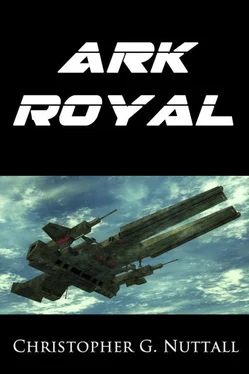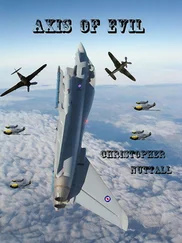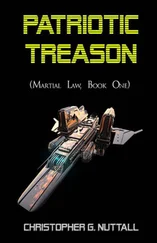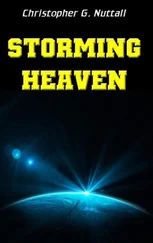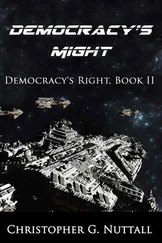“Worse, it seems likely that they have a better FTL system than ourselves,” he concluded. He pointed to a starchart, then focused it on the New Russia system. “Their appearance within the system didn't correspond to any known tramline. It seems that they jumped from a star we would consider outside normal tramline range. This suggests that our strategic maps of human space may be badly outdated.”
Ted exchanged a long look with Fitzwilliam as the information sank in. Normally, the tramlines rarely stretched past five light years. It still took time to move from system to system… but if the aliens had access to weaker tramlines, they might well be able to evade the human defences and outmanoeuvre the human starships. It could give them a potentially decisive advantage.
To add to the other ones they have , he thought, grimly. They’d been wrong; the aliens hadn't been reluctant to attack further, they’d just waited until humanity had offered them a tempting target. And then they’d attacked, wiping out a colossal force and shattering humanity’s unity. The loss of New Russia alone was a serious blow.
“We have prepared recordings of the battle for you,” the First Space Lord said. “I advise you to watch carefully, as the recordings will not be released until the PM has addressed the nation.”
“Good idea,” Fitzwilliam muttered. “There will be panic if this gets out.”
Ted didn't bother to disagree. Everyone knew that carriers were the most powerful starships in existence. Losing one alone would be a disaster, losing twelve… even if only two of them had been British, would seem catastrophic. And, if the aliens really did have a decisive technological advantage, it might not be long before Earth itself was targeted.
He leaned forward as the main display lit up, showing the New Russia system as a tactical display. The alien fleet — fifteen carrier-sized starships, forty smaller craft — jumped into the system, well away from any known tramline. Ted wondered, absently, if the aliens were actually trying to trick the human analysts. They had enough stealth technology to hide their fleet until the moment they chose to show themselves. Why not try to intimidate humanity into surrender?
But those plasma weapons weren't illusions , he thought, numbly. They were real .
Humanity’s fleet assembled, blocking the alien advance. Messages were sent, offering talks… only to be ignored. Humanity’s starfighters had advanced forward, ready to engage the enemy… until the moment the enemy starfighters had appeared, between the human starfighters and their carriers. They had to have passed through the swarm of human fighters, completely undetected. Ignoring the suddenly frantic starfighters, the aliens threw themselves at the human carriers. Powerful blasts of plasma fire tore into their hulls, burning through flimsy armour and wrecking havoc inside the ships. One by one, humanity’s ships were rapidly torn apart.
The battle wasn't completely one sided, he noted. Human weapons could and did kill enemy fighters, but there were just too many of them. The humans were overwhelmed and destroyed before they could reorganised their formation, allowing the alien starships to advance forward to engage New Russia itself. And then the recording came to an end.
“We will be rethinking our plans in light of this development,” the First Space Lord said, with admirable understatement. “I don't think I need to explain just how serious this situation is, do I?”
No one disagreed.
Ted stared down at his hands, wondering briefly why he hadn't taken early retirement. It wasn't as if the navy wanted to keep him. And he could have been on the ground, instead of standing on the command deck of a carrier. But the navy was his life. And he knew his duty.
I volunteered to place myself between Britain and war , he reminded himself. And yet he’d never really faced the prospect of his own death in wartime. Accidents had accounted for more naval deaths over the past decades than enemy action. I don’t get to back out because it might have become dangerous .
“Dismissed, gentlemen,” the First Space Lord said. “Captain Smith, if you and Commander Fitzwilliam will remain behind…”
“Yes, sir,” Ted said.
He waited until the massive compartment was almost empty, then followed the First Space Lord through a guarded airlock into a tactical planning centre. A handful of analysts were seated at terminals, working their way through the data from New Russia. He looked at one of the screens and saw an alien carrier, a fragile-looking craft. But they hadn't needed heavy armour to rip New Russia’s defences apart.
“Take a seat,” the First Space Lord ordered. “We have a mission for you.”
“A mission,” Ted repeated. “What do you want us to do?”
“The important detail, I think, is that the modern carriers simply lacked the armour to stand up to alien weapons,” the First Space Lord said. “That, combined with their stealth systems, gave them a definite advantage over the united fleet, allowing them to tear us apart.”
His voice was curiously flat. Ted realised, not entirely to his surprise, that the First Space Lord was too tired to really feel the deaths… and grasp the full magnitude of what it meant for the war. If humanity’s unarmoured ships were easy prey for alien fighters, the war was within shouting distance of being lost along with the carriers. Once the carriers were gone, humanity wouldn't even be able to continue the war.
Understanding clicked. “ Ark Royal might be able to stand up to them,” he said. He found himself fighting to hold back the urge to giggle in a decidedly-unmilitary manner. “We still have our armour.”
“Indeed,” the First Space Lord agreed. “ Ark Royal might be able to survive where more modern carriers would have real problems.”
He tapped a switch, activating the star chart. “We are still studying the records, of course, but it seems to me that the aliens managed to jump over nine light years to New Russia, judging by their appearance. If this is the case, they have a major advantage over us. In particular, they will be able to avoid all of our blocking forces and reach Earth directly.”
Ted nodded. Earth possessed over seventy percent of humanity’s industrial base, population and fixed defences. It wouldn't go down easily, but if Sol were to be lost the human race might as well set off and try to escape in a ragtag fleet of starships, hoping they could evade the enemy long enough to rebuild and return to restart the war. But the odds would be against a successful escape.
“I believe that the aliens will attempt to jump here” — the First Space Lord tapped another star — “and use it as a waypoint on their road to Earth. There’s nothing there, apart from a handful of tiny mining stations and independent settlements. The aliens will have no trouble destroying them — or simply ignoring the settlers completely. I want Ark Royal in position to intercept the enemy fleet.”
“And then… what?” Ted asked. “We would be massively outgunned.”
“Delay them, force them back on their heels,” the First Space Lord said, grimly. “Their carriers don’t appear to be any stronger than ours — and you have mass drivers and other projectile weapons. I intend to attach a squadron of missile frigates too, once they’re worked up and ready for deployment. If you can give them a bloody nose…”
Ted saw the logic, even though it still seemed chancy. It might well be a suicide mission, yet he could understand why the First Space Lord would want to keep the fighting as far from Earth as possible. Between the political shockwaves and the panic that was likely to result, once the news finally broke, Earth would be in no state to defend itself.
Читать дальше
